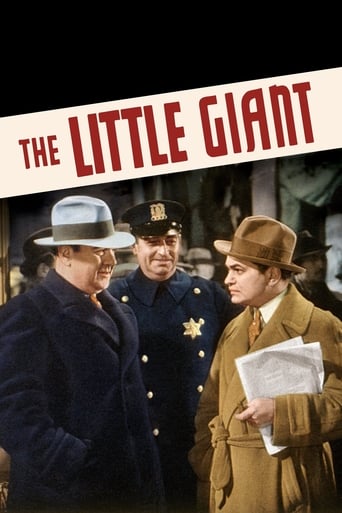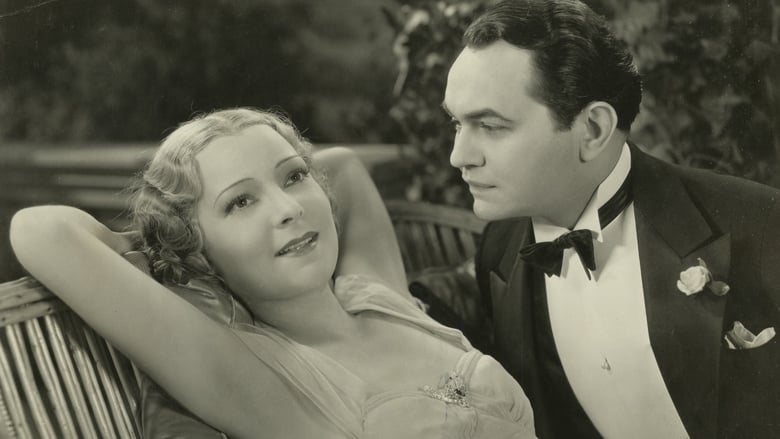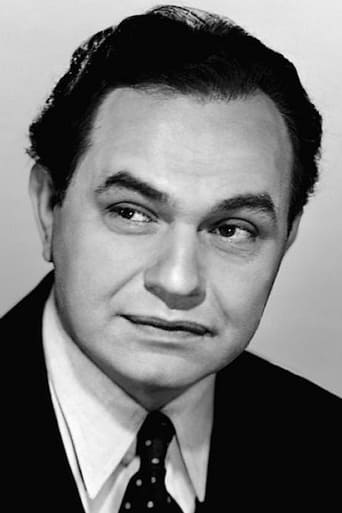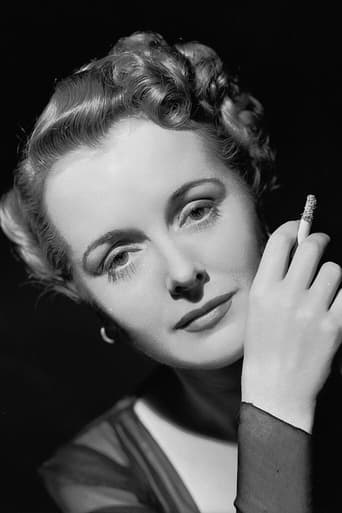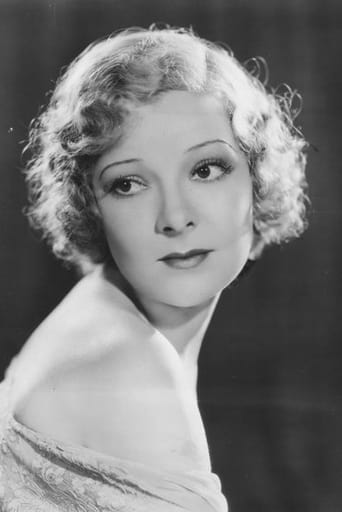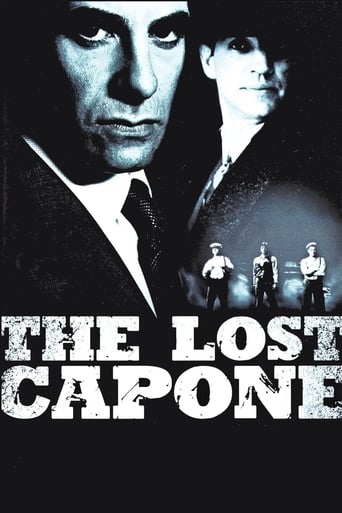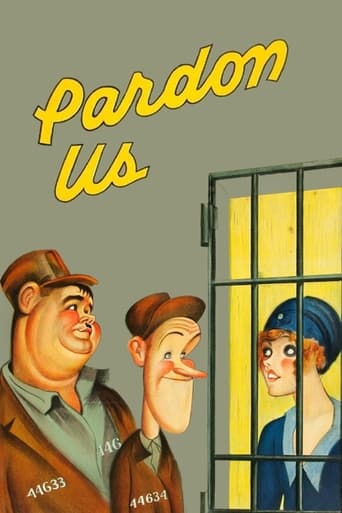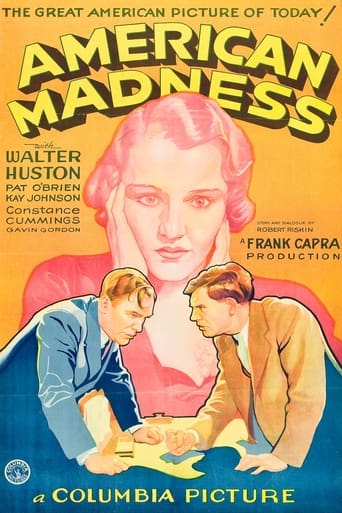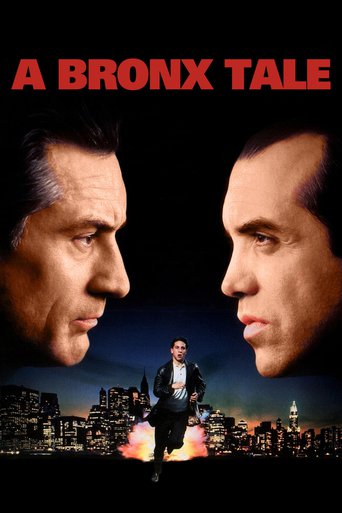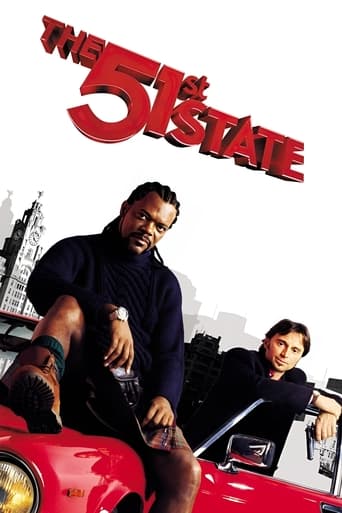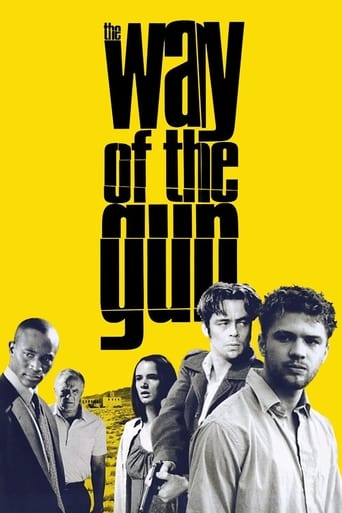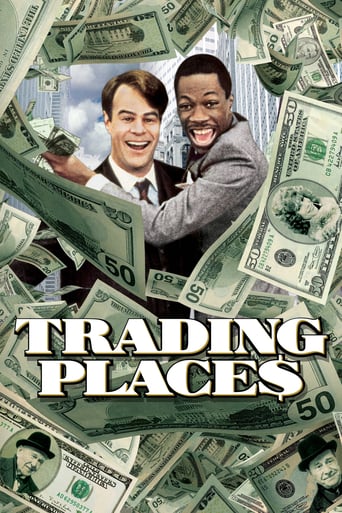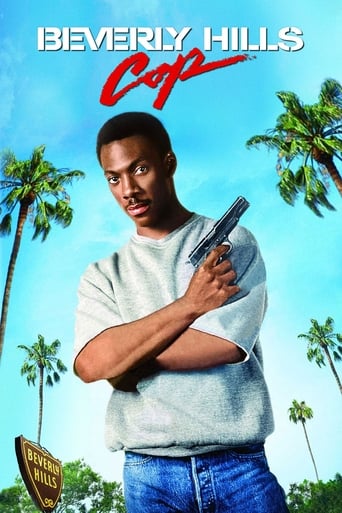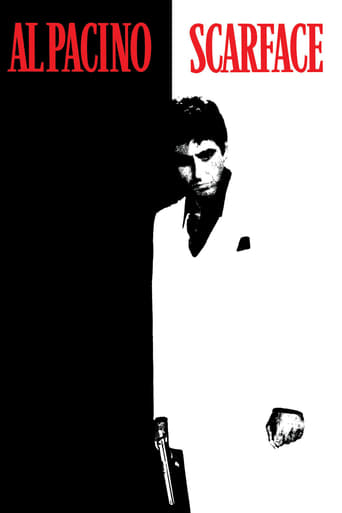The Little Giant (1933)
Prohibition is ending so bootlegger Bugs Ahearn decides to crack California society. He leases a house from down-on-her-luck Ruth and hires her as social secretary. He rescues Polly Cass from a horsefall and goes home to meet her dad who sells him some phony stock certificates. When he learns about this he sends to Chicago for mob help.
Watch Trailer
Cast


Similar titles
Reviews
Don't listen to the Hype. It's awful
Like the great film, it's made with a great deal of visible affection both in front of and behind the camera.
One of the most extraordinary films you will see this year. Take that as you want.
It is a whirlwind of delight --- attractive actors, stunning couture, spectacular sets and outrageous parties. It's a feast for the eyes. But what really makes this dramedy work is the acting.
Prohibition ends and gangster boss Bugsy Ahearn, like so many during the depression, finds himself unemployed. What to do? Fortunately, he has laid aside much of his ill-gotten gains and has no money worries. So he decides to improve himself, to acquire some culture and move in elite circles. And therein lies a very funny story.Edward G. Robinson shows a flair for comedy and shows off some of his immense talent as a social climber who decides to shoot the moon. He moves from Chicago to the West Coast, buys a mansion and falls for a lady from a family of swindlers, and generally falls into a series of mishaps, each one funnier than the last. He gets excellent support from Mary Astor, who becomes his guide to the finer points of becoming 'quality'.You will gain great respect for Robinson if you've only seen him in tough-guy roles, as he carries the picture as a society naif in this written-for-the-screen comedy. There are no dead spots, either, as the story moves along briskly in an enjoyable 75 minutes. It was shown at Cinefest, Columbus, O., 6/13.
If anyone is looking for a great Mob Comedy, that really is a MOB Comedy, this is it. Spoilers: It is about a Bootlegger named Bugs Ahearn (Edward G. Robinson), and his second in commend Al Daniels(Russell Hopton), who decide to go straight after Prohibition ends, and move out to Beverly Hills and find out that the businessmen out there (Such as the Cass Family (Led by Father Donald Hadley (Barton Churchill), and not so sweet Polly (Helen Vinson)), who are far more crooked then the Mob ever was (They have a code of honor). The only person who knows the truth about how they are playing him as a sucker is Ruth Wayborn (Mary Astor), who has to act as his Personal Secretary, but really loves him. Mary knows the truth, because she was once rich, and they swindled her out of her fortune, so she has to rent out her mansion (Which Bugs did not know). When he finds out the truth about how gullible he was (They stuck him and many others with worthless stock certificates) he is so dejected, he gives a $15,000 wedding ring that he bought for Polly to a blind man, begging for money. One of the best scenes occurred in the DA's Office where he was told that not only was broke, but he would be going to jail for the swindle. The only way he could avoid this is get the money back. He asked the DA to let him make a call, and it went straight to the Boys in Chicago, and they could not wait to get back into action (Including boarding planes with Machine Guns). Not only did they got back all of the investors money plus interest, with heavy duty shakedowns (Including torture to a crook who refused to pay up), it was done in a way, that when the Mob took over the crooked investment company, with the assistance of Ruth (Who is good with numbers) they made sure it would be profitable for Bugs, his fellow mobsters, and the people who got their money back. The film ended with Robinson and Astor looking down from the mansion seeing gangsters on Polo Ponies, falling over themselves, and laughing about it. What is interesting is how Pre-Code it was: Including the torture scene, the DA not objecting to Robinson calling in the Mob (Showing gangsters as heroes would not be allowed a year later), Robinson referring to the rich as 'fags', and Al admitting he snorted Cocaine. Like the torture scene, no nos a year later. If you like Warner Bros Gangster films, and Robinson in particular, it should be a must see. Of course, it merits 10/10 Stars.
Most lovers of classic Hollywood film know what an outstanding and versatile dramatic actor Romanian-born Edward G. Robinson could be. In a career that stretched over four decades, Robinson appeared in an astonishing number of quality films, and even the lesser of his pictures were made interesting and watchable by his mere presence. Fewer viewers, I have a suspicion, may recall how adept Robinson could be at comedy, but for proof of this, one need look no further than one of the actor's pre-Code efforts, "The Little Giant." Released in May 1933, this was not only Eddie's first comedic role, but indeed, the very first gangster comedy ever made. Produced by First National Pictures, which had been taken over by Warner Bros. in 1928, the film's mash-up of genres was successful enough to pave the way for later gangster comedies featuring Robinson. John Ford's "The Whole Town's Talking" (1935, and featuring Jean Arthur in her breakthrough role) was perhaps the best of the bunch, followed in 1938 by the borderline screwball "A Slight Case of Murder" and 1942's very funny "Larceny, Inc.," and even some "serious" gangster pictures featuring Robinson, such as 1938's "The Amazing Dr. Clitterhouse" and 1940's "Brother Orchid," would contain a goodly leavening of humor. In short, the gangster comedy, as initially proved by "The Little Giant," was a very viable entertainment.In the film, Eddie plays a Chicago mobster named Francis "Bugs" Ahearn. When Prohibition ends in 1933 (the film was most certainly timely!) and booze is suddenly made legal, Bugs decides to call it quits, pay off his boys, go legit, get some culture and move to Santa Barbara, CA. He's got "a million and a quarter salted away," and with that filthy lucre and his childhood buddy Al (Russell Hopton, very funny here in his straight-man role), he arrives at a posh hotel by the sea, ready to crash high society. After falling in love with a glamorous "skirt" named Polly Cass (Helen Vinson), Bugs decides to buy a ritzy 20-room, 14-bath mansion to impress her, and makes his pretty Realtor, Ruth (a very appealing Mary Astor), both his house manager and social secretary. But what Bugs doesn't know is that Polly is a con artist, from an entire family of con artists; indeed, a family that makes Janet Gaynor's family of crooks in 1938's "Young in Heart" seem perfectly angelic! It seems as if Bugs might be learning polo and buying a wedding ring in vain....Featuring wonderfully snappy dialogue, well-drawn characters and big laffs, "The Little Giant" is an absolute delight from start to finish. The film is remarkably compact, and manages to pack quite a bit of yucks and story into its brief 74-minute running time. Indeed, director Roy del Ruth never lets the pace flag; he would not work with Robinson again, but would reunite with Astor the following year for a picture called "Upperworld," one that I have not seen but which has a good reputation. Robinson and Astor have some definite chemistry on screen, and the viewer wonders what Bugs sees in the comparatively homely Polly when Astor's Ruth is so much brighter, sweeter, prettier...and certainly more honest. Astor's face in the early '30s seemed a bit softer and rounder than the more angular look she boasted in the '40s, and her Ruth Wayburn here is ever so much more attractive than the Brigid O'Shaughnessy that Humphrey Bogart would encounter in 1941's "The Maltese Falcon." Robinson and Astor had apparently appeared together once before, in the little-seen 1923 silent "The Bright Shawl" (also starring Richard Barthelmess, Dorothy Gish and William Powell--what a cast!--and with Astor playing Robinson's daughter), and would also appear together in 1934's "The Man With Two Faces." Being one of the last of the pre-Code films, "The Little Giant" sports some lines that modern-day audiences might not be prepared for, such as the reference to giving someone "the finger," and when Bugs refers to the upper-crust snobs as a bunch of "fags"! And then there is the startling early scene in which Bugs shows Al a piece of abstract art (Robinson, it should be remembered, would, years later, own one of the largest private art collections in the world, and one that he had to sell in 1956 to pay off a divorce settlement) and asks his buddy, "You ever seen anything like that before?" Al's response: "Not since I've been off cocaine"! You've gotta love these pre-Code gems! Anyway, Robinson seems to be having a ball here, turning his 1931 "Little Caesar" role of Rico Bandello on its head and squeezing it for laffs; he even gets to look straight into the camera once, hilariously. And yet, this tough guy with a decent heart manages to arouse the viewer's sympathy, too, as he haplessly mingles with the snooty society folk and chases a girl who is waaaaay wrong for him. How satisfying it is, then, when Bugs uses some Chicago strongarm tactics toward the film's finale to rectify the wrongs done him by the Cass family! And what a sweet little ending, too, to wrap things up with! An enormously pleasing entertainment, it's no wonder that "The Little Giant" opened up a whole new genre of film!
Part of Edward G. Robinson's longevity in movies was his ability to choose the occasional film that showed he could laugh at the tough characters he created. In "The Whole Town's Talking" (1935) and "A Slight Case of Murder" (1938) he successfully kidded his own genre but he did it first with "The Little Giant" (1933).He plays Bugsy Ahearn, a Chicago beer baron and the film begins with the election of President Roosevelt. That spells the end of prohibition but O'Hearn has already started making plans - reading books on ancient Greece by Plato (Pluto!!!), buying modern art, taking up golf, in other words getting "cultured"!! - he is determined to "crash society"!!! His gang is like one big happy family but after he and Al (Russell Hopton) go out to California, he finds he is swimming with sharks when he becomes entangled with the fortune hunting Cass family. He falls instantly in love with Polly (Helen Vinson) but each of the family fleeces him in different ways until the father sells him a worthless company. Of course they don't realise he has made his money bootlegging and when they do that is the only excuse they need to break Polly's engagement, flee the country and leave him holding the bag - but not before he sends for his old cronies to dispense some Chicago rough justice of his own.This movie is just so much fun - Edward G. Robinson almost over- powers the whole cast and he really struts his stuff and gives the movie going public exactly what they expected from him in 1933 but with the added bonus of laughs!!! Mary Astor is as usual gorgeous and fully up to Robinson as Ruth. She plays a once wealthy girl, whose father has been financially ruined and she is now reduced to renting out the family mansion to Ahearn. She becomes his unofficial teacher, showing him how to act, how to give dinner parties and also that not everyone is as horrible as the Casses. Helen Vinson played the fortune hunting Polly to perfection but, strangely, I found her not as attractive as she usually is. Berton Churchill had also perfected roles like the conniving Father Cass and he was excellent. Shirley Grey was another example of a pretty, talented actress who just didn't make it big - she played Ahearn's cast off mistress, Edith. It was nice to see Russell Hopton with a decent part in a grade A film. He has one of the best lines in the movie. When O'Hearn asks him if he has ever seen a painting like that before, he replies "Not since I stopped using cocaine!!!!!"Highly, Highly Recommended.

